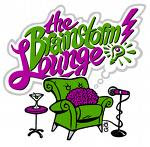During staff meeting I created a new action research plan. Here is the slimmer version:
ICT ACTION RESEARCH
SMART Goal Setting
Name: Natalie Barnett Date: 25 March 2009
Specific Teaching and Learning Area: Reading
Area of Interest: Gifted Learners and ICT
Goal: To extend the learning opportunities for my gifted readers by teaching them to record their responses to books using ICT
Which area of teaching and learning are you focusing on? What is your specific goal?
Measurable
• Record observations, ideas and reflections using a personal blog
• Children’s achievement level will be measured using Probe reading testing.
• Children’s interest and knowledge of technology will be assessed by completing a survey.
• Initial digital work samples will be taken.
• At the end of the teaching period Probes will be repeated, latest work samples compared with earlier ones and the survey will be completed again.
How are you going to keep a record of your observations, actions and reflections?
How will you measure where the children are at currently?
How will you measure any changes?
Action Plan
1. Create learning blog for myself.
2. Brainstorm ideas and add to blog.
3. Probe test to assess children’s reading level.
4. Survey the children to assess children’s interest and knowledge of technology.
5. Introduce children to Kidpix programme. Keep work samples.
6. Teach children to use the following ICT tools: digital camera, Kidpix, Powerpoint
7. Integrate new ideas into the reading programme.
8. Repeat testing and work samples. Analyse and compare
9. Present ideas and findings of my action research.
What key steps will you take? Each step will take you closer to achieving your goal?
What is your first step? ( where the children are at)
What is your first step? ( action to change or improve)
Realistic
• Kidpix on my laptop, computers in the computer lab and the classroom computer
• Adapting knowledge of Mac programmes to using PC programmes
• Small group (4 children)
• Helpers (past colleagues: Jane Nicholls & Esmay Sutherland), Desa, Keith
• Time available – two terms
• Regular computer lab time (Thursday afternoon)
List the things you’ll need
Don’t plan things that will be difficult to achieve. Think about:
- the availability of equipment
- your skills at the moment
- the time available.
- who will help you?
- size of group
Timeframe
Term 1
• Brainstorm possible topics
• Decide on a issue I want to investigate
• Formulate research question
• Decide on children involved in the study
• Construct an Action Research Plan
• Create a learning blog
• Collect student data
• Collect student voice information (survey of personal use of the internet, knowledge of programmes etc)
• Complete professional readings
• Complete professional dialogue with colleagues
Term 2
• Plan new activities to be introduced
• Teach new programmes/activities
• Implement ideas into the daily reading programme
• Collect data from students (achievement level, survey of knowledge & enjoyment of new tasks)
Term 3
• Analyse data
• Publish and share findings
1. When do you plan to start work on this goal?
2. What is your plan for ongoing work? (e.g. Every Friday morning)
3. What extra time can you put in? (e.g. at home)
4. What is the completion date?
5. What date will you reflect and assess the work?
6. When will you be presenting the goal, outcome and the evidence to your peers?
Monday, April 20, 2009
Subscribe to:
Post Comments (Atom)

I'm just wondering if providing students with an authentic audience for their responses to their reading will add to the motivation factor for your research? Using a blog or podcast or wiki to put their responses to reading online to share with others, or taking part in a global collaboration with a reading context might add the authentic reason for using ICT... Just a thought :)
ReplyDelete